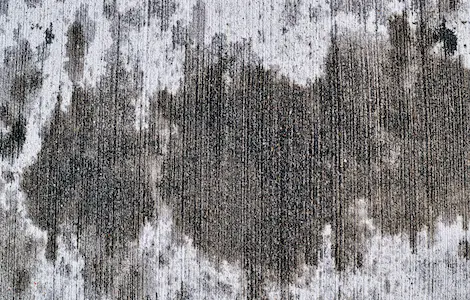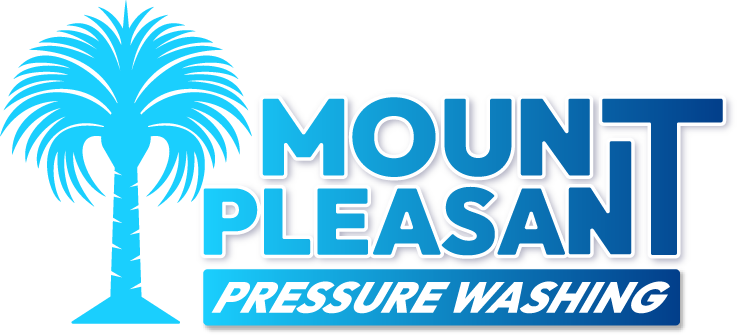Have you ever learned that your car or truck has an oil leak, some of which soaked into your driveway? Or have you changed the oil on your lawn mower or leaf blower and spilled some on accident?
Oil stains on concrete are such a common problem that many people come to accept it as a normal occurrence that lasts forever. It creates an unsightly appearance that throws off the symmetrical, tidy appearance of a well kept driveway.
How should we remove oil stains to return our driveways back closest to their original appearance?
Common Oils That Stain Driveways and Concrete Floors
At one point or another, you have probably seen the following oil stains in parking lots, driveways, garages, and sidewalks:
- Motor oil: This most frequently common stain comes from your own vehicle, others’ vehicles, and lawncare equipment.
- Gasoline: These stains look like motor oil stains but are lighter in appearance. If your vehicle or other motorized equipment is leaking gasoline, get it fixed right away as that poses a fire hazard.
- Transmission fluid: Less common of a stain, this fluid is typically dark red and more distinguishable from gasoline and motor oil
- Hydraulic fluid: These fluids are a larger class of oils used in machinery of which transmission fluid is classified within. Common oil stains from this class include power steering fluid, brake fluid, and others from industrial machinery such as garbage trucks and heavy equipment.
- Food or kitchen grease: Less common on residential properties, this kitchen grease is often seen in high traffic areas such as restaurants, fast food spots, and gas stations. They are the easiest to remove.
Common Ways to Remove Oil Stains from Driveways
Before you get started in removing pesky oil stains from concrete, there are a few expectations to set when preparing for oil removal.
- The longer the oil stain has been sitting in your driveway, the harder it will be to remove.
- You can get the majority of an oil stain out of concrete, but don’t be frustrated if you can’t get 100% of the stain removed – sometimes it is not feasible
- There are a variety of methods to remove oil stains, and choosing the right method for you depends on safety, chemical knowledge, and budget.
Start With Drying the Oil Stain
Regardless of how old the oil stain is, you should start by using an absorbent material to collect any wet surface level oil. You can use a variety of materials and methods, such as the following:
- Kitty litter – Grind it into the surface, let it dwell for 30-60 minutes, brush it away, and collect the rest. You can repeat this until the oil stain appears drier than when you started.
- Paper towels or rags – use these when the oil stain is no older than 24 hours.
- Sand or table salt – Sands and salts are great at absorbing moisture and can be used on most oil stains. Let them absorb for at least 15 minutes and then brush them away.
- Baking soda – This is a good alternative if you have any lying around in your cleaning storage. Let it sit until the baking soda looks saturated, then brush and collect.
Since oil is flammable and an environmental contaminant, always dispose of cleaning materials using compliant local guidelines.
Next, Choose Your Cleaning Agent
When choosing any of these cleaning agents, always do your own research on chemical safety and read any instructions on products you buy. Also wear protective eyewear and gloves as some of these chemicals are caustic.
- Common degreaser – Degreasers can be found at any local big box store or hardware store. Instructions change from product-to-product, but a common and effective degreaser is ZEP Heavy Duty Citrus Degreaser. Follow the directions as describe on the label and apply to your oil stain.
- WD-40 – This can be used as a simple degreaser on most oil stains. Spray a thick and even coat on the oil stain and work it into the concrete with a brush. You can let it sit overnight and then rinse away with a garden hose or pressure washer.
- TSP – Trisodium phosphate is a well known cleaning agent that has many cleaning properties. We recommend this for homeowners who are experienced in exterior cleaning as TSP can damage metal, glass, and ceramic tile. Start by dissolving 1 dry cup of TSP in hot water. You can either pour the solution directly onto the oil stain or pour the gallon of solution into a pump sprayer to get more coverage. Let it sit until for a half hour or until you notice a color change. Soak up what you can into paper towels as TSP is not environmentally friendly. Rinse the rest away with a jet nozzle on your garden sprayer or use a pressure washer.
Professional Oil Stain Removal
If you are in search of peace of mind for your exterior cleaning, look no further than our team at Mount Pleasant Pressure Washing. We handle all the chemical knowledge, power equipment investment, and protection to your landscaping. Rather than spend hours researching the chemicals to remove oil stains, several trips to the hardware store, and hundreds of dollars of power equipment, let a professional team handle your exterior cleaning needs.
We pride ourselves on being oil stain removal experts in the Lowcountry due to our extensive chemical knowledge and access to the industry’s top environmentally friendly cleaning agents. We provide free estimates and often package oil stain removal into a discounted rate with a standard driveway cleaning.

